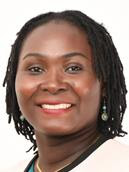Social Norms as a Barrier
to Women's Employment
Keynote by Seema Jayachandran

International Women's Day
Tuesday 8 March 2022
15:00 – 16:30 UTC
7:00 Los Angeles | 10:00 New York | 15:00 Accra
16:00 Paris | 20:30 New Delhi | 23:00 Shanghai
Social norms influence many dimensions of women’s lives. In some instances, these informal rules about what is considered to be acceptable or not within a community can adversely affect women’s choices and outcomes, with further implications for their empowerment and agency. Despite the acknowledged presence of its negative implications, social norm violations can provoke community-wide disapproval and reprisals – a force that continues to sustain these practices. In this panel, we discuss a plethora of potentially adverse implications of social, and patriarchal, norms on women’s economic and sexual and reproductive health outcomes in developing countries.
Social norms are critical to many areas of policy such as employment and health. Although social norms exert a powerful impact on people’s behavior, they are typically difficult to measure directly and therefore, often neglected in the design of policy. Nonetheless, a number of countries are becoming more aware of and committed to the need to design critical policies to correct some effects of such norms on women’s social and economic wellbeing. The seminar explores the nature of some policies that have been developed in several country contexts and how these have affected women’s lives.
The webinar, organized by Nkechi Owoo, is based on Seema Jayachandran's recent policy paper in the IMF Economic Review. Willa Friedman and Jean-François Kobiané served as discussants. The discussion was moderated by Monica P. Lambon-Quayefio.
INTRODUCTION

Nkechi Owoo
- University of Ghana
- IUSSP Council member
KEYNOTE SPEAKER
Seema Jayachandran
- Northwestern University
'Social Norms as a Barrier to Women’s Employment in Developing Countries'
DISCUSSANTS

Willa Friedman
- University of Houston

Jean-François Kobiané
- Institut Supérieur des Sciences de la Population / Université Joseph Ki-Zerbo
MODERATOR

Monica P. Lambon-Quayefio
- University of Ghana

